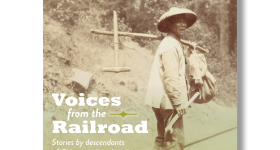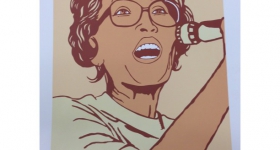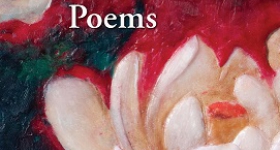“Jack, insisting that he’d come to Spain to fight fascism, had left the kitchen and joined the infantry. Again and again we would repeat our wishes that he would go back to the kitchen. He always laughed and told us to go to hell.”
Harry Fisher’s recollection of Jack Shirai in his memoir, Comrades: Tales of a Brigadista in the Spanish Civil War, exemplifies Shirai’s final years as a happy yet defiant soldier, beloved not only for his skills as a cook but also for his determination to fight for his beliefs. Though assigned as his battalion’s chief cook, Shirai insisted on taking up arms, sacrificing his life to fight in a country far from any he could call his own for a cause that was truly his—to help the poor and the working classes from around the world.
Born in the early part of the century, probably the early 1920s, Shirai grew up an orphan in the Tobetsu Trappist Monastery near the Japanese port city of Hakodate. Details of his early life are hazy, but he appears to have joined the Japanese navy after leaving the monastery, and he entered the United States some time around 1930. Having arrived in the midst of the Great Depression, Shirai lived for a time in New York cooking for Japanese restaurants, but soon became involved in small communist workers’ groups, despite the ongoing persecution of communists at the time.
In 1936, Spanish general Francisco Franco of the fascist Nationalists led a military uprising against the recently elected Spanish Republican Government. Both Hitler and Mussolini supported Franco and used Spain as a dress rehearsal for World War II, launching massive air and ground attacks that swiftly laid cities to ruin. To help the fragile Republic, the Comintern—the USSR-dominated association of communist cadres—formed the International Brigades, a volunteer organization that enlisted as many as 60,000 men and women from more than 50 countries, many with little or no military experience. So, with other young communists, Shirai joined the Brigades to pursue his ideals and fight fascism.
At the end of 1936, Shirai traveled to Spain to join the Abraham Lincoln Battalion as part of the 15th Brigade of the International Brigades. The Lincoln Battalion was a prime model of communist idealism, comprised mostly of troops from the working classes and led at one point by Oliver Law, the first African American to command white American troops.
Shirai first saw action at the Battle of Jarama starting on February 6, 1937, when the fascists attempted to cut off Madrid from the rest of the Republic. Though the Lincoln Battalion suffered heavy losses, they managed to help the Republican forces thwart the fascists’ offensive.
For the next several months, the Lincoln Battalion endured a cold and rainy winter in the trenches of Jarama Valley. Shirai established close bonds with other members of his battalion during this time, particularly with Mel Offsink and Max Krauthamer. Harry Fisher recalled sitting in on the three friends’ many “bull sessions”: “After the war, they were going to open a restaurant together, and anyone who had fought in Spain would never have to pay for a meal. They would soak the rich and open their kitchen to the poor. Shirai took pleasure in describing the food they would serve.” Near the end of their stay in Jarama, Shirai went behind the lines to cook at a hospital for sick and injured civilians. Fellow comrade David Martin (who used the penname Ludwig D.), wrote a poem honoring Shirai, describing how “village farmers talked often / Of the Japanese who had come so far for them.”
On July 6th, Shirai’s battalion marched to the Battle of Brunete to help break the stranglehold the fascists had formed around Madrid. During their march, a section of the battalion was cut off from the rest of the group. Shirai, realizing his comrades’ desperate situation, left his position to help. Peter O’Connor, an Irish veteran who fought alongside the Lincoln Battalion, recounted Shirai’s final moments in his book, Soldiers of Liberty— Recollections of a Socialist and Anti-Fascist Fighter: “While we were taking a breather, I happened to be sitting next to Jack Shirai when he was struck in the forehead by an explosive bullet … He died instantly … We were all very sorry to lose such a great Japanese anti-fascist.”
Returning to headquarters, Harry Fisher saw a ditch where the dead were waiting to be buried. “At first, looking down into the ditch, I didn’t realize that Jack was dead. But then I saw Mel Offsink holding him, stroking his head; tears were pouring down Mel’s face.”
Jack Shirai rose from humble beginnings to cross the oceans and die a soldier. He was beloved both by his comrades and the people he fought for, and will go down in history as the only known Japanese American hero of the Spanish Civil War.
Rocky Choi holds a bachelor of arts in English literature with an emphasis in creative writing from UCLA, and a bachelor of science in bioinformatics from University of California, Santa Cruz. He lives in San Francisco.









Comments